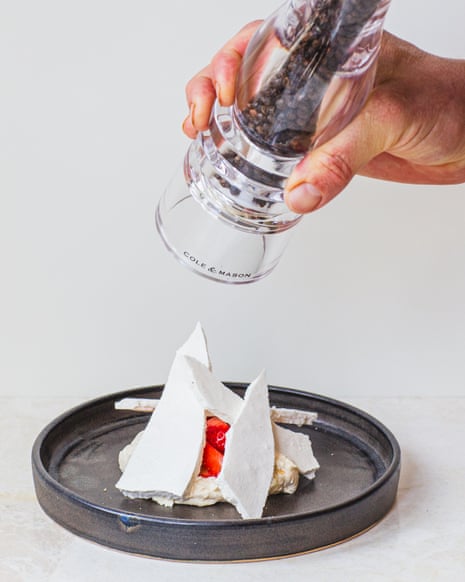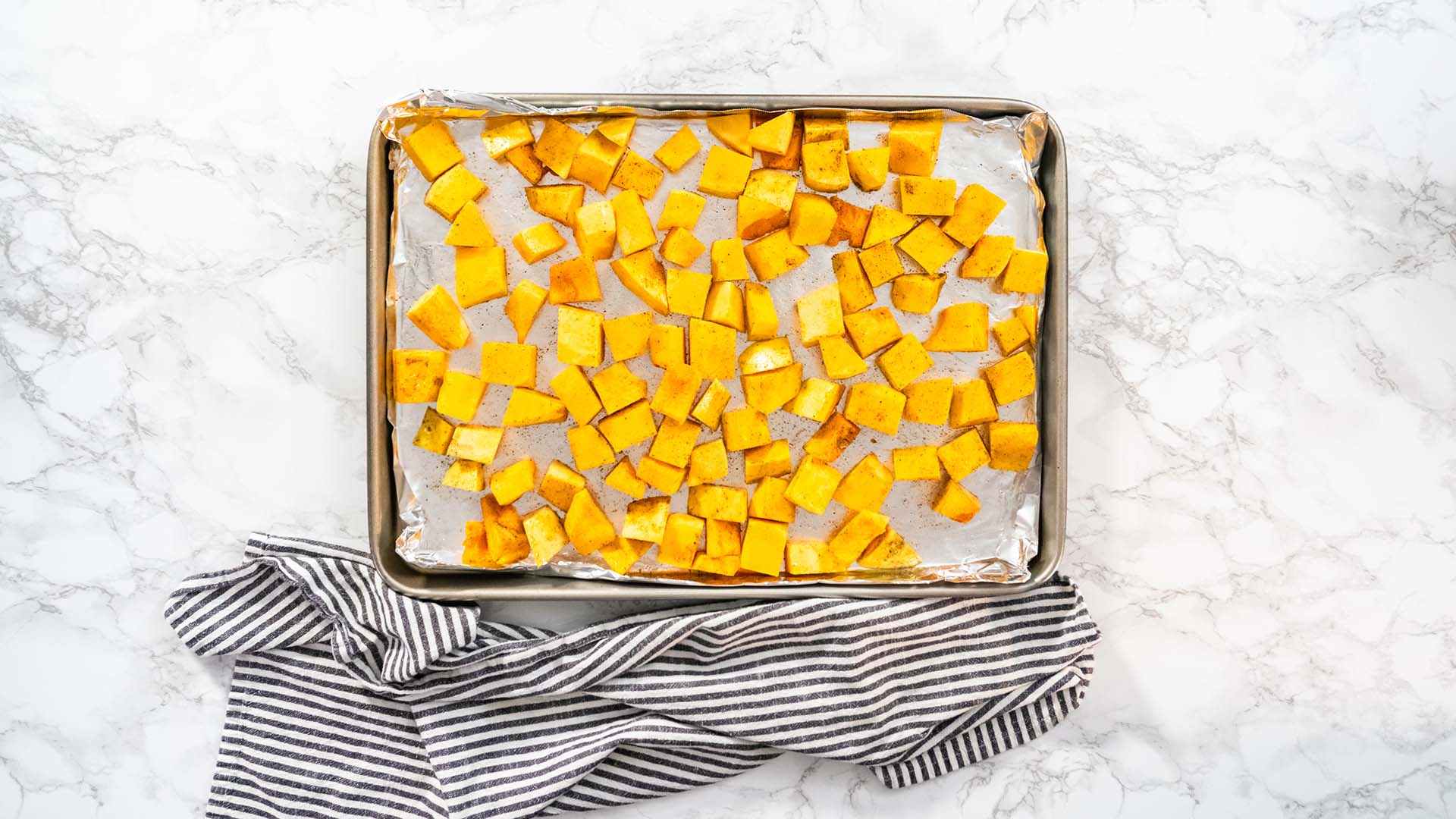Every Nigerian kitchen has its secret to transforming basic ingredients into great feasts, and the humble egg—often found in countless local recipes—continues to prove its versatility in unexpected ways. Just think: how many times have you cracked an egg to make akara, puff-puff, or a classic Sunday jollof, only to wonder what magic the leftover whites or yolks might hold? In Lagos, it’s common to see bakers at Yaba Market chatting about inventive ways to avoid wasting anything, using what’s on hand to whip up treats for customers on the go or at family gatherings. Recently, I set out on a mission to reimagine the classic meringue dessert, but with a twist rooted in both local ingenuity and global flavors, creating a dish that feels at home at an Abuja party but would impress in London or Accra as well.
Picture this: You find yourself with just one egg white left over after making some fried plantain and eggs for breakfast. Instead of letting it languish in the fridge, why not turn it into light, crisp meringue shards? These delicacies offer an elegant crunch and make even the simplest pudding or homemade chocolate mousse shine. Here in Nigeria, where minimizing waste is a survival skill and a creative outlet, this approach feels like second nature. And for those who grew up watching their mums or aunties salvage every last bit of yam, rice, or fruit, finding ways to celebrate the overlooked parts of everyday ingredients isn’t just practical—it’s a point of pride.
So how do we bring this culinary tradition into a modern dessert, one that’s as striking as Lekki’s skyline and as vibrant as the fruits piled at Bodija market stalls? It all starts with one egg white and a handful of fresh or slightly bruised berries—think strawberries, raspberries, or even the wild blackberries sometimes found near Nigerian villages after the rainy season. Drawing inspiration from the mix-and-match nature of classic Nigerian desserts, we blend innovation and resourcefulness, choosing local twists like a sprinkle of suya pepper for a spicy kick or swapping in soursop or pineapple if strawberries are out of reach.
The story behind this recipe stretches far beyond one country’s borders. Across the globe, resourceful cooks have been beating egg whites into glossy, stiff peaks for centuries. In Paris, chefs famously sketch their dessert ideas on napkins, while in Lagos or Kumasi, inspiration blooms in the middle of traffic or while shopping for the freshest tomatoes. I remember sitting in an open-air café near the University of Ibadan, scribbling out ideas in my notebook with the distant rhythm of Afrobeat music in the background. I envisioned a dessert that borrowed the jagged edges of a city skyline—much like how Renzo Piano’s design for London’s Shard building was penned down hastily yet brilliantly. Why not course those jagged edges through a dessert, giving it both visual drama and a satisfying bite?
Yet, this creation isn’t only about aesthetics. The key flavor combination—fresh berries, black pepper, a touch of basil, and sweetened cream—hints at both tradition and adventure. In Nigeria, adding spice to sweets isn’t unusual. Think about the hot groundnut sprinkled atop mango slices in Benin City or the mild warmth of alligator pepper spicing up chin chin. Here, a dash of black pepper in the meringue adds a gentle warmth, perfectly offset by the natural sweetness of ripe fruits and the cool, soothing pillow of rich cream—be it locally churned or store-bought. If basil feels unfamiliar, local scent leaf (efirin) can be a refreshing substitute, bringing in that familiar herbal note everyone loves in pepper soup or stew.
This dessert is also a celebration of making the most of what you have, a hallmark of West African kitchens. Those slightly softened or marked down strawberries from Shoprite? Scoop them up! Toss in leftover blueberries or swap them out for diced pawpaw, and let each bite reflect the season’s bounty. And if there’s only a trickle of cream left in the carton, whip it together with evaporated milk or even thick coconut cream—another nod to our tropical roots.
Let’s get practical, because time and patience are every home chef’s most precious ingredients. In less than 25 minutes, you can have the “mess” prepped and resting in the fridge. While it chills, use the time to clear your kitchen, prepare a pot of tea, or chop up some seasonal pineapple for tomorrow’s breakfast. If you’re gathering family for a special celebration—from birthdays in Port Harcourt to Ramadan iftar in Kano—this dessert easily scales up. And if your kids or nephews insist on helping, let them crack the egg, whisk, or even shape the meringue before it goes into the oven. After all, food is about memories as much as flavors!
Here’s how to craft this crowd-pleaser Nigerian-style:
For the Crispy Meringue Shards
– 1 egg white (the fresher the better)
– 3 tablespoons (about 37g) fine sugar—use whatever you have, icing or regular
– 3 tablespoons (about 37g) icing sugar, sifted if possible
– A pinch of cream of tartar (optional, but helps stabilization)
– A quarter teaspoon of fresh ground black or suya pepper for a “Naija” touch
– Tiny pinch of salt to bring out flavor
For the Berry Mess:
– 1 generous cup (about 200g) ripe strawberries or any mix of local berries—raspberries, blackberries, diced pawpaw, or mango work beautifully
– 1 tablespoon sugar (or honey if you prefer Nigerian sweetness)
– Juice and zest of a quarter of a lemon or one small local lime
– Handful of chopped basil or scent leaf for a herbal finish
– 1 cup (about 220ml) clotted cream, whipped cream, thick coconut cream, or whipped evaporated Peak milk
To prepare the crispy meringue shards, preheat your oven to 110°C (90°C if using a fan oven). Line your largest tray with unbleached baking paper or a non-stick silicone mat. Place the egg white in a grease-free bowl—if possible, rub the bowl with a slice of lime to remove lingering oil before you start. Add your sugars, cream of tartar, and black pepper. Using a sturdy hand whisk, or a mixer if you’ve got one, beat the mixture on high until it becomes thick and glossy, standing proud in stiff peaks. For a more “Naija” flavor, consider scattering in a little suya spice or ground kuli-kuli just before you finish whisking.
Spoon the whipped meringue onto your tray, smoothing it gently into an even layer resembling thin pap or pancake batter. Bake for an hour and a half—take a tea break, join a family gist, or catch up on your favorite Nollywood series while the house fills with a sweet, inviting aroma. The meringue should feel crisp but not browned. Allow it to cool completely on the tray, then gently peel it off and break into long, jagged shards reminiscent of city rooftops at dusk.
For the berry mess, wash and hull your fruits. If using strawberries, chop them into small, even cubes; for mango or pawpaw, dice to similar size. In a bowl, gently mix the fruit with sugar, citrus zest, and juice. Add the finely chopped basil or scent leaf, stirring delicately to avoid bruising the leaves. Let this combo rest in the fridge for an hour to develop its flavor—overnight if you want the best results or to free up your time for work or school.
When ready to serve, spoon generous layers of fruit into glasses, tumblers, or small bowls—the best vessel is what you already have at home. Drape with cold, airy cream, then scatter the cooled meringue shards over the top, shaping them like Lagos traffic in the evening: a little wild, beautifully unpredictable, and perfectly suited for sharing. For a festive or party finish, top with extra chopped nuts, a drizzle of zobo syrup, or a pinch of extra suya pepper if you love heat.
Beyond being delicious, this dessert tells a story of resourcefulness and celebration, two values that resonate throughout the region. Bringing together modest ingredients with a bold spirit, this dish bridges the gap between cozy home kitchens and cutting-edge eateries. It’s a reminder that every leftover holds the promise of something extraordinary—and in Africa, every resource is cherished.
For a stunning presentation to wow guests, consider a styled overhead shot featuring locally woven tablecloths, a small bowl of fresh berries beside a stack of golden meringue shards, and a background of bustling family members preparing for a weekend feast.
How do you turn kitchen leftovers into new culinary adventures? Have you tried adding a uniquely Nigerian or Ghanaian twist to a classic dessert? We’d love to hear your stories—or see your photos—of creative kitchen makeovers. Share your dessert innovations or offer festive recipe tips in the comments or send your stories and food photos to food@nowahalazone.com.
For general support, reach out to: support@nowahalazone.com.
NowahalaZone pays for original stories! If you have unique food memories, market tales, street food innovations, or kitchen secrets to share, pitch us at story@nowahalazone.com. How do you reimagine your leftovers? Tell us your favorite zero-waste food hack and join the conversation!










